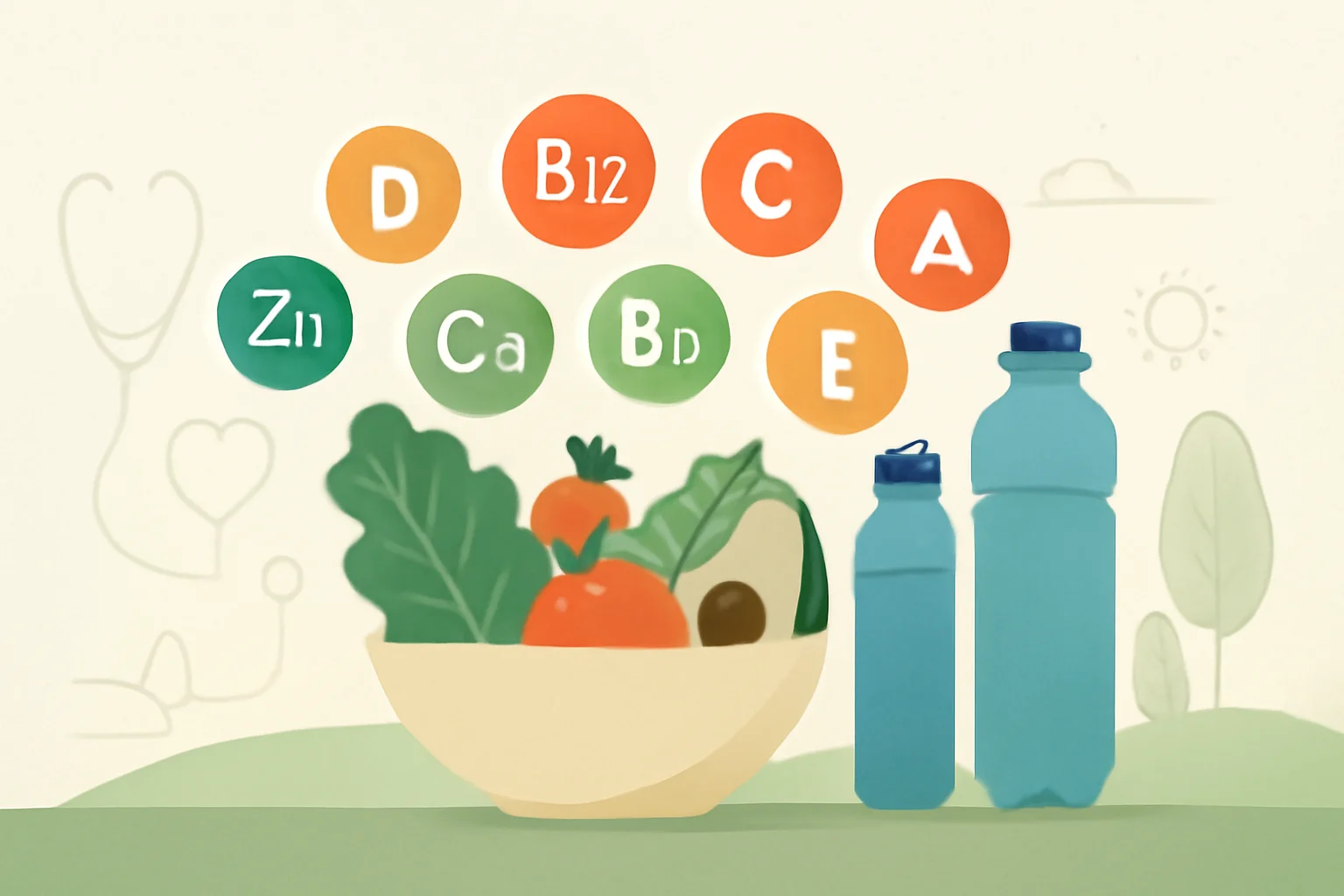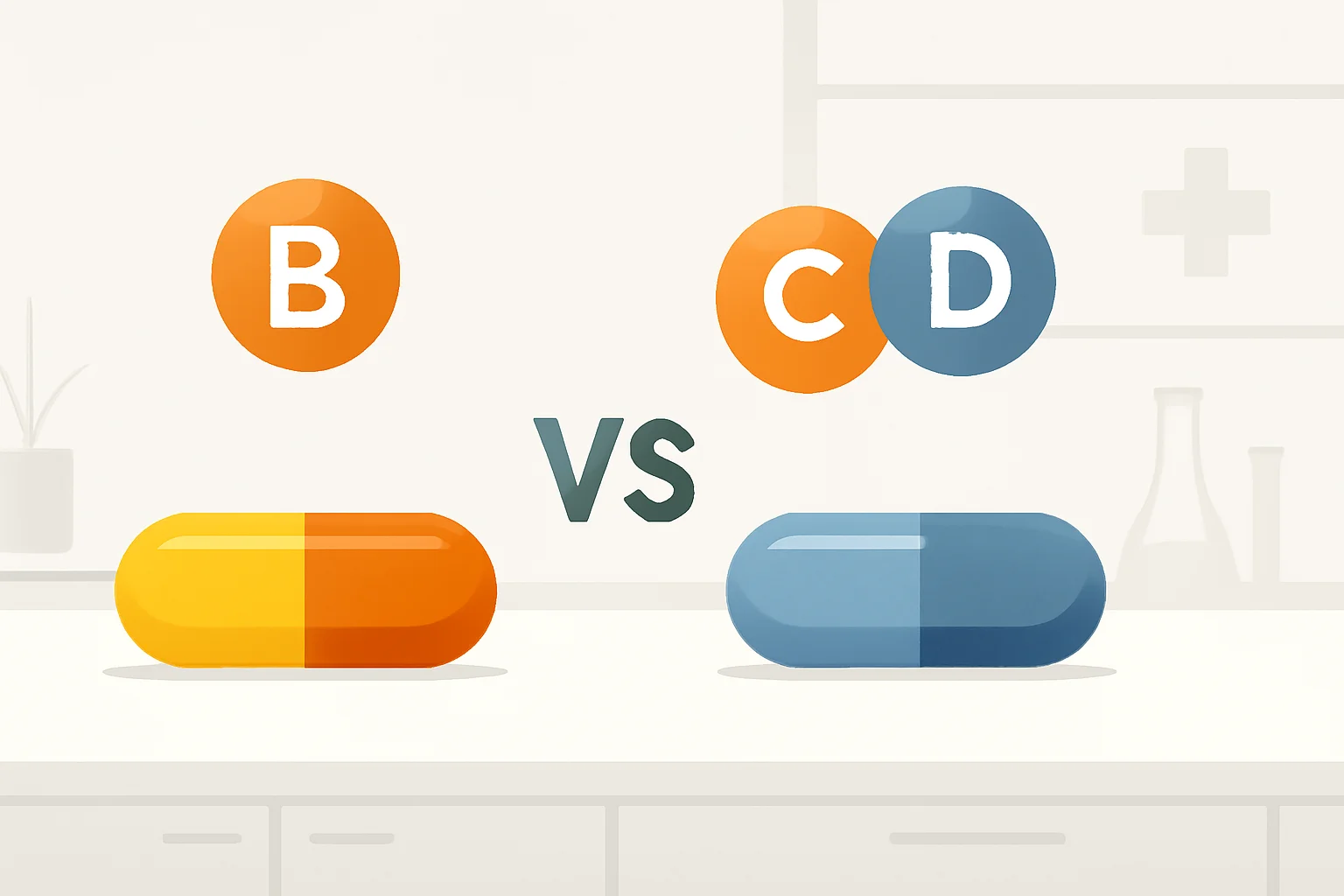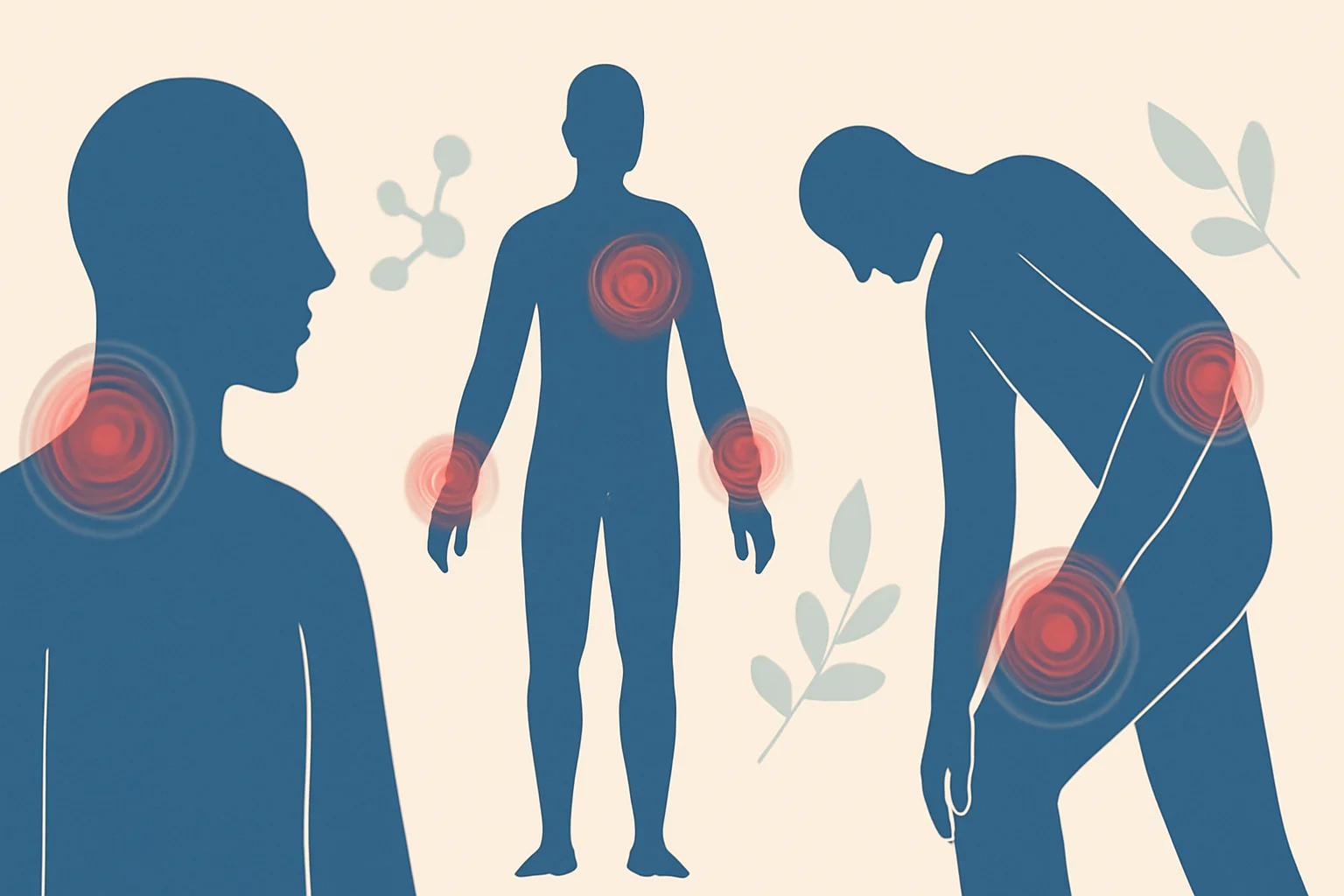
The Relationship Between Vitamin Deficiency and Anemia and Its Treatment Options
The deficiency of vitamins and anemia are two conditions that are often confused, although they are characterized by fundamentally different causes and symptoms. Vitamin deficiency refers to the lack of various nutrients, such as vitamins and minerals, in the body, while the term anemia refers to a decrease in the number of red blood cells or a low level of hemoglobin. Both conditions can cause serious health problems, making it important to be aware of the differences and potential consequences.
Vitamins and minerals play a vital role in the functioning of the human body. These substances contribute to normal metabolism, strengthen the immune system, and aid in cell regeneration. In contrast, anemia reduces the blood’s ability to transport oxygen, which can lead to fatigue, weakness, and numerous other health issues. Recognizing, diagnosing, and treating vitamin deficiency and anemia are essential for maintaining well-being and a healthy lifestyle.
In the following sections, we will examine the symptoms, causes, and treatment options for vitamin deficiency and anemia in more detail to help promote conscious nutrition and a healthy lifestyle.
Vitamin Deficiency: Causes and Symptoms
Vitamin deficiency occurs when the body does not receive enough vitamins through daily meals. Vitamins are essential for healthy functioning, and their deficiency can lead to various health problems. The most common vitamin deficiency conditions include deficiencies in vitamin C, vitamin D, vitamin B12, and folic acid.
For example, vitamin C deficiency is often due to low consumption of fruits and vegetables and can lead to scurvy, which causes fatigue, gum bleeding, and skin problems. Vitamin D deficiency can lead to weakened bones and decreased calcium absorption, which can result in osteoporosis in the long term. Deficiencies in vitamin B12 and folic acid can cause anemia and can lead to severe neurological problems if not treated promptly.
The symptoms of vitamin deficiency cover a wide spectrum, ranging from fatigue, weakness, and a weakened immune system to deterioration in the condition of the skin, hair, and nails. Additionally, vitamin deficiency can lead to more severe health issues in the long term, such as cardiovascular diseases or autoimmune disorders. Diagnosing vitamin deficiency requires a blood test that shows the levels of vitamins in the body.
To prevent vitamin deficiency, it is important to consume a variety of foods rich in vitamins and minerals in our diet. Fresh fruits, vegetables, whole grains, meats, dairy products, and fish play a key role in ensuring adequate vitamin intake. Taking dietary supplements can also be beneficial, especially for those with specific nutritional needs or those who do not consume enough nutrients.
The Signs and Causes of Anemia
Anemia is a condition characterized by a decrease in the number of red blood cells or a decrease in hemoglobin levels. Hemoglobin is the protein that carries oxygen in the blood, so anemia affects the body’s oxygen supply. The most common type of anemia is iron deficiency anemia, which usually results from insufficient iron intake.
Symptoms of anemia include fatigue, weakness, pallor, shortness of breath, and dizziness. These symptoms can be noticeable in everyday life, and many people do not even consider that anemia may be the underlying issue. Diagnosing the condition requires a blood test that shows hemoglobin levels and the number of red blood cells.
The causes of anemia can be extremely varied. The most common causes include iron deficiency, which often occurs in menstruating women, as well as poor nutrition or absorption disorders. Additionally, chronic diseases, such as kidney disease or cancer, can also contribute to the development of anemia.
The treatment of anemia depends on the underlying cause. In cases of iron deficiency, taking iron supplements and consuming iron-rich foods is generally recommended. During treatment, regular medical check-ups are important to monitor hemoglobin levels.
How Can We Prevent Vitamin Deficiency and Anemia?
Preventing vitamin deficiency and anemia is crucial for maintaining a healthy lifestyle. The first step is conscious nutrition, which includes consuming a variety of nutrient-rich foods. Fresh fruits and vegetables, whole grains, lean meats, fish, and dairy products all contribute to adequate vitamin and mineral intake.
Regular medical check-ups are also essential, especially for those prone to vitamin deficiency or anemia. It is advisable to have at least one blood test per year to be aware of the levels of vitamins and minerals in our bodies. Additionally, taking dietary supplements can also be helpful, but it is always advisable to start this under medical guidance.
Stress management, regular exercise, and sufficient rest also play important roles in strengthening the immune system and preventing vitamin deficiency and anemia. There are many techniques available for reducing stress, such as meditation, breathing exercises, or yoga, which can help maintain physical and mental well-being.
Finally, alongside conscious nutrition, it is wise to pay attention to symptoms as well. If we experience fatigue, weakness, or other unusual symptoms, it is important not to hesitate to consult a doctor. Early diagnosis and appropriate treatment can help prevent more serious health problems.
**Warning:** This article does not constitute medical advice. In case of health issues, everyone should only follow their doctor’s advice.

